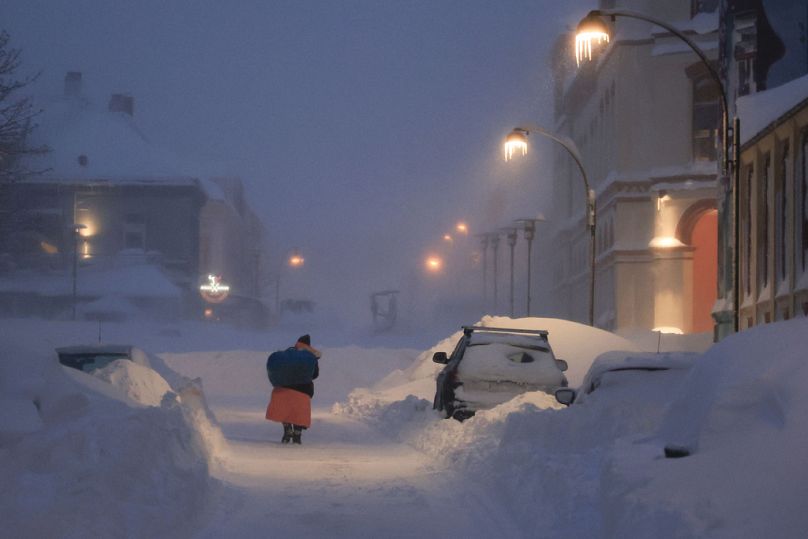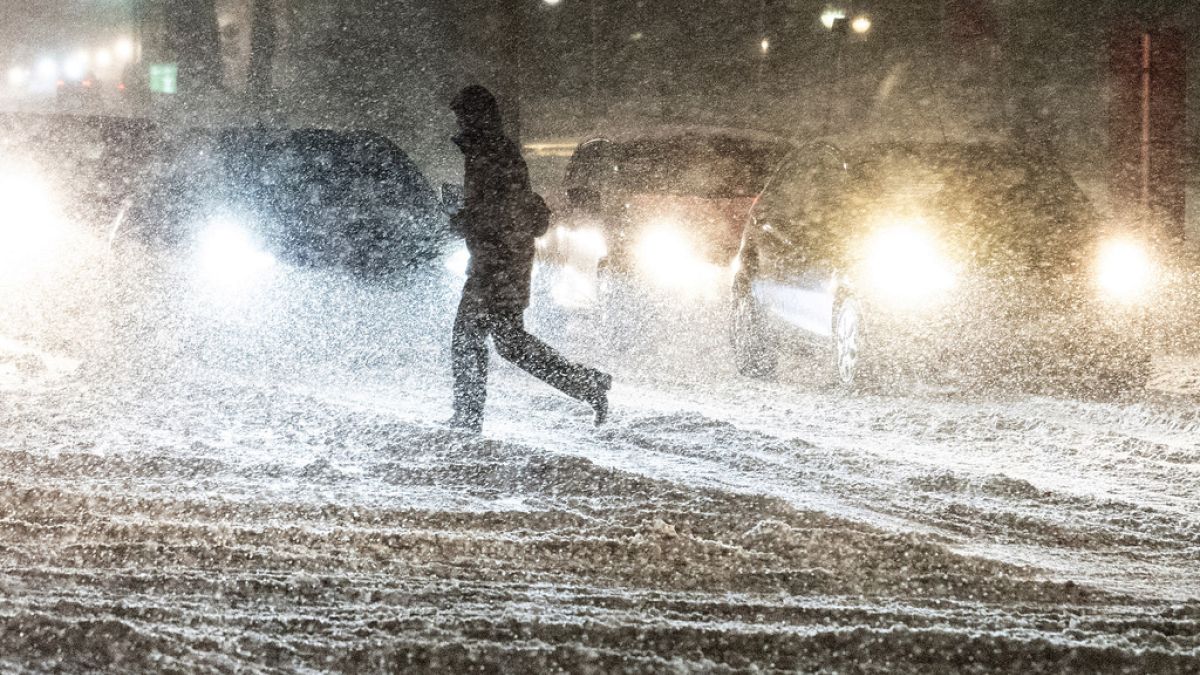Europe Is Hit by Extreme Cold – 2024
Europe Faces Dual Weather Challenges: Extreme Cold Grips Nordic Countries, While Storms and Flooding Hit Western Europe
In a rare and striking convergence of weather extremes, Europe finds itself grappling with the simultaneous onslaught of extreme cold in the Nordic countries and devastating storms and floods in the western regions. The juxtaposition of these contrasting weather phenomena highlights the complex and dynamic nature of climate patterns, urging us to delve into the intricacies of each event and their potential interconnectedness.
Extreme Cold Grips Nordic Countries:

The Nordic countries, known for their resilience in the face of harsh winter conditions, are currently in the grip of an exceptional cold spell. As reported by VOA News, temperatures have plummeted to levels rarely seen, causing widespread disruptions. The impacts range from transportation challenges and power outages to concerns for public safety. The chilling temperatures prompt us to reflect on the evolving climate patterns and the potential influence of larger climate-related factors.
Simultaneously, western Europe is contending with a barrage of storms and flooding, as detailed by Euronews. Coastal areas are battling with rising water levels, leading to extensive flooding and property damage. The storms bring not only the immediate threat of inundation but also pose challenges for emergency response and long-term recovery efforts. Understanding the origins and intensification of these storms is crucial for developing strategies to mitigate future impacts.
Interconnectedness and Climate Change

While these extreme weather events may seem disparate, the scientific community is increasingly exploring the interconnectedness of weather patterns on a global scale. Climate change, driven by human activities, has been linked to the intensification and increased frequency of extreme weather events. As we witness the Nordic deep freeze and the storms battering western Europe, it prompts us to consider the broader implications of a changing climate.
In the face of these challenges, European nations must continue to enhance their adaptive capacities and resilience to extreme weather events. This involves investing in infrastructure that can withstand the impacts of severe cold, storms, and flooding. Additionally, fostering international collaborations for data sharing and advanced weather forecasting can significantly improve preparedness and response efforts.
The juxtaposition of extreme cold in the Nordic countries and storms and flooding in western Europe serves as a poignant reminder of the multifaceted nature of climate challenges. While each event requires specific attention and response strategies, recognizing the potential links between these occurrences underscores the urgency of addressing climate change on a global scale. It is through collective efforts, informed policies, and sustainable practices that we can strive to build a more resilient and climate-resilient future for Europe and beyond.
- You must be logged in to reply to this topic.






